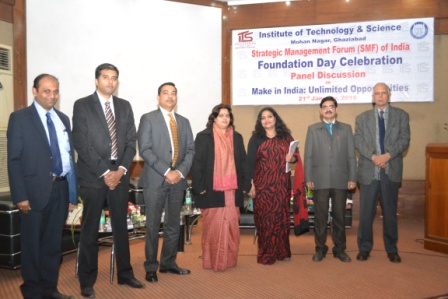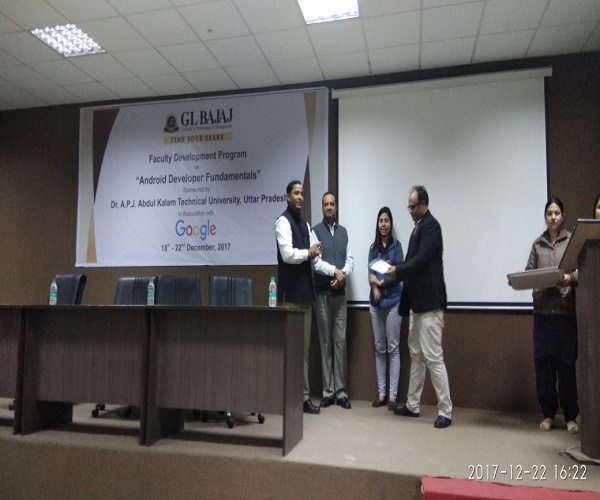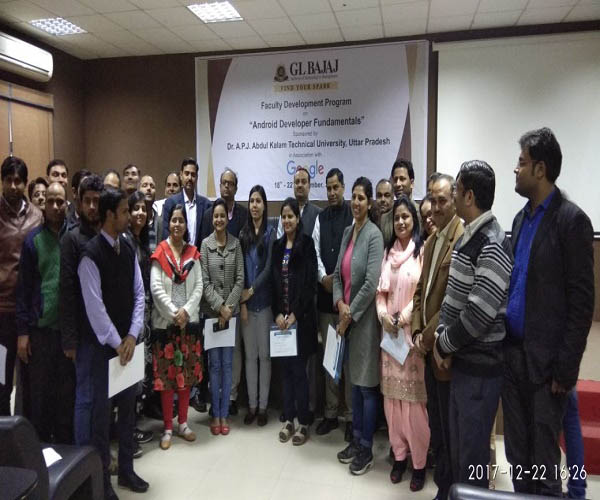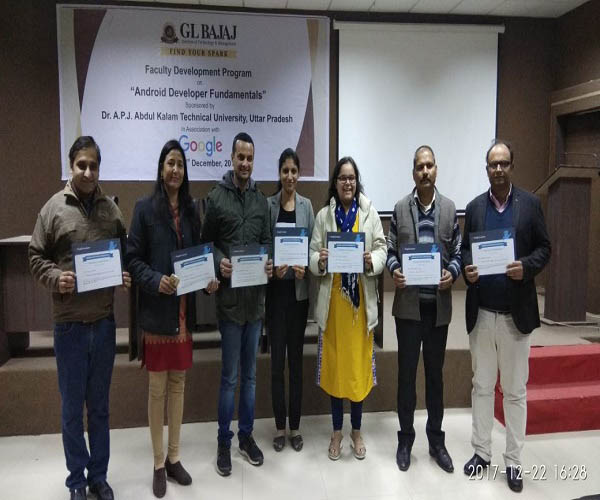Latest Updates
Two faculty of Department of IT, Prof Gaurav Kumar Midha and Prof Varun Arora attended 5-day workshop by Google with train-the-trainer programme on “Android Developer Fundamentals” Sponsored by AKTU at GLB ITM, Gr Noida, Gr Noida sponsored by AKTU.
Android Developer Fundamentals is an instructor-led course created by the Google Developers Training team. Developers taking the course learn basic Android programming concepts and build a variety of apps, starting with Hello World and working their way up to apps that use content providers and loaders.
Ms. Simmi Anand corporate trainer was the resource person for the training.




The course materials included:
A practical workbook: Android Developer Fundamentals Course—Practicals
• A concept reference: Android Developer Fundamentals Course—Concepts
• Slide decks (for optional use by instructors)
• Videos of lectures (for reference by instructors and developers)
Android Developer Fundamentals includes five teaching units:
• Unit 1: Get started
• Unit 2: User experience
• Unit 3: Working in the background
• Unit 4: All about data
• Unit 5: What's next
Unit 1: Get started
This unit covers installing Android Studio, understanding project structure, building first app, creating activities, testing apps, and using the Android Support Library.First, One can deploy a simple Hello World app. One can go on to create an app with a simple activity, and then One can create a multi-screen app that passes data between activities. One can also learn how to use the Android Support Library to provide backward-compatibility with earlier versions of the Android system for app.
Unit 2: User experience
This unit covers how to get input from the user, implement navigation strategies, use themes and styles, test user interface, and follow Material Design principles.
One can create apps that use menus and tabs for navigation, and input controls such as spinners and picker dialogs to get information from the user. One can learn how to extract resources to create a style from an instance of a user interface element. One can write an app that displays a word list in a recycler view (and One can learn why it's better to use a recycler view than a plain scrolling list).One can also build a score-keeping app to explore Material Design guidelines.
Unit 3: Working in the background
This unit covers how to do background work, how to schedule tasks, and how to trigger events. It covers the performance implications of executing work in the background, as well as best practices for reducing battery drain. One can learn how Android determines which apps to keep running and which to stop when resources run low.
One can write an app that connects to the Internet in a background thread to find the author of any book. One can also build apps that send notifications and schedule tasks, and One can learn how to implement scheduling functionality for apps that run on earlier versions of Android.
Unit 4: All about data
This unit is all about data. It covers how to store data, update it, query it, load it, and make it available outside app.
One can build a word list and store the words in a database. To understand content providers, One can build a minimal content provider app. Then One can add a content provider to the word list app to provide an interface for querying and updating the list. One can finish by creating a separate app that uses a loader to load the word list via the content provider.
Unit 5: What's next?
This unit covers permissions, app performance, and security best practices. It explains how to run a trial of app so family and friends can try it out.
This unit also introduces some of the many additional Android features that you can add to your app, and explains how to publish your app in Google Play.
It was a great learning experience with hand on lab instructions and practical work in android developer studio.

